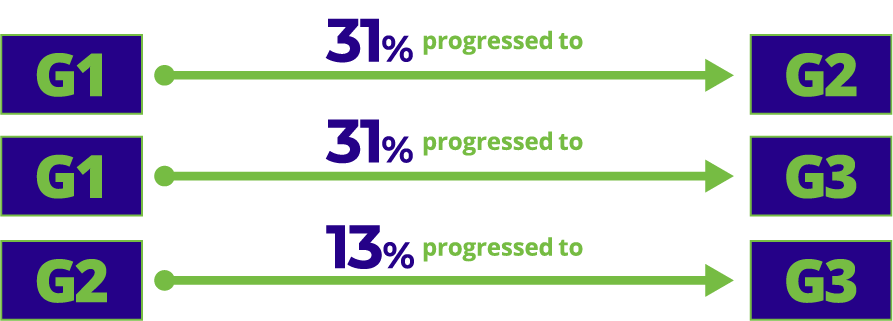About GEP-NET Patients
Early Action Can Be Critical
Early action can be critical to the treatment of progressive diseases such as GEP-NETs1-4
Because GEP-NETs are heterogeneous with different clinical presentations, many patients have advanced disease by the time they're diagnosed1-4
Based on an assessment of 837 patients from the National Cancer Registry for Gastroenteropancreatic Neuroendocrine Tumors (RGETNE) in Spain. In this cohort, 14% of patients had regional spread and 44% had distant metastases.4
Worsening of tumor grade is common in GEP-NETs and is associated with poorer outcomes1-3
75% of patients saw their tumor become more aggressive with time2,*
*Data from a study of 43 patients with well-differentiated NETs of different primary sites (including lung) over time. Sixteen patients (37%) were identified with grade changes (with a time interval of 4–81 months).2
GEP-NETs are often diagnosed at the metastatic stage and threaten to become more aggressive with time, highlighting the need for earlier interventions with clear evidence across tumor grades2,4
G, grade; GEP-NETs, gastroenteropancreatic neuroendocrine tumors; NETs, neuroendocrine tumors.


